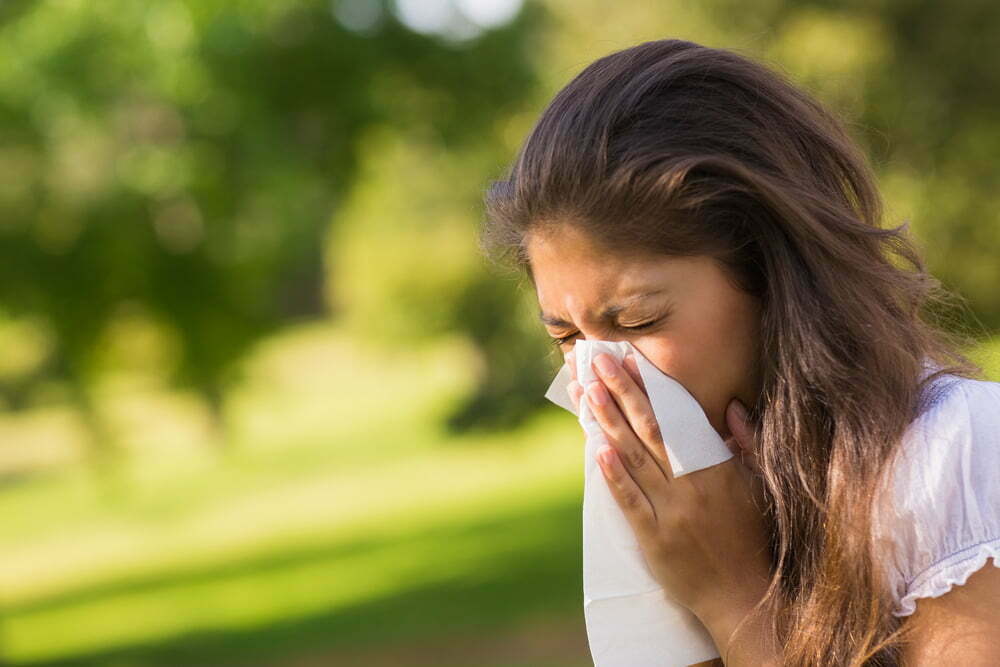
People living in Atlanta are exposed to numerous airborne allergens every day. These allergens are among the main causes of allergic rhinitis, and a considerable source of discomfort. However, with access to expert allergy diagnosis and effective treatment options, managing hay fever doesn’t need to be difficult. Here are some daily habits to assist with allergic rhinitis relief.
Common Allergens Causing Allergic Rhinitis
If you don’t understand the allergens responsible for causing your allergic rhinitis symptoms, you will inevitably struggle to find effective relief. First identifying the common types of allergies and how they trigger reactions is an important step in treating allergic rhinitis. The following triggers for seasonal allergic rhinitis affect many adults and children.
- Pollen – Airborne particles from trees, grasses and weeds.
- Mold Spores – Tiny fungal particles (found in damp areas indoors and outdoors).
- Dust Mites – Tiny insects that live in dust (can be found in bedding, carpets and furniture).
- Pet Dander – Skin flakes, saliva and urine from cats, dogs and other animals.
- Cockroaches – Waste from cockroaches (often found in warm, humid environments).
These microscopic airborne allergens are breathed in through the nose or mouth. While some allergens such as tree or ragweed pollen are seasonal, only affecting people for a few months each year, others can be present in the home throughout the year unless you take the proper precautions.
Best Habits for Managing and Treating Allergic Rhinitis
Allergic rhinitis (or hay fever) describes inflammation of the inside of the nose that occurs following contact with an environmental allergen. The allergic reaction causes symptoms including nasal congestion, sneezing, itchy eyes and nose, postnasal drip and a sore throat. And while there is no cure, some practices can definitely lessen the impact.
Understand Your Allergy Triggers
When you have suffered from allergies for a while, you probably have a pretty clear idea of some of the triggers. However, to get a comprehensive and accurate diagnosis, you need to visit an allergist for skin or blood testing. The results will identify exactly what is causing your hay fever, allowing for an effective treatment plan.
Manage Allergic Rhinitis With Medication
Using certain medications is a good daily habit to help reduce allergic rhinitis symptoms. Such medications may include antihistamines, decongestants and corticosteroids. Using this treatment option typically delivers fast relief from nasal allergy symptoms; however, do speak with an allergist before taking a new medication.
Self-Care for Hay Fever Symptoms
Taking care of yourself with saline nasal irrigation and using butterbur and similar natural remedies can minimize hay fever symptoms. Maintaining a consistent sleep pattern is also helpful. But be cautious when using supplements and natural treatments, as the possibility of exacerbating nasal inflammation does exist.
Maintain a Clean Environment
Allergens can be found all over the home, so take steps to keep your environment clean. Washing your sheets and clothing regularly is important, along with vacuuming up pet hair! In addition, keep your air conditioning units and filters clean to avoid spreading dust throughout the home.
Adjust Dietary Habits
While dietary choices are not major contributing factors to allergic rhinitis, there are certain foods that could worsen symptoms. For example, eating spicy foods can sometimes increase nasal symptoms.
Follow a Regular Exercise Routine
Physical exercise is a great daily habit for health improvement overall. Because working out improves blood flow, for a person with allergic rhinitis it also helps flush allergens out of the system.
Allergy Shots for Allergic Rhinitis
Allergy shots, or immunotherapy, reliably treat many types of allergies. And while allergy shots are not required daily, patients must follow a strict routine for the best results. Usually, a person receives allergy shots from one to three times per week until the maintenance stage is reached.
Professional Allergic Rhinitis Diagnosis and Treatment in Atlanta
If you are experiencing the common symptoms of allergic rhinitis or other allergies, get in contact with one of our offices today. Call (678) 668-4688 or request an appointment now.
